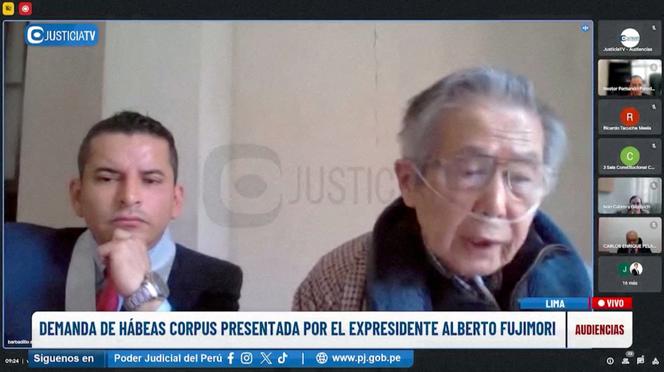


Peru’s former President Alberto Fujimori was released from prison Wednesday, December 6, on humanitarian grounds, despite a request from a regional human rights court to delay his release.
Fujimori, 85, was serving a 25-year sentence in connection with the slayings of 25 Peruvians by death squads in the 1990s. Peru’s constitutional court ordered his immediate release on Tuesday, but the Inter-American Court of Human Rights asked for a delay to study the ruling.
Fujimori, who governed Peru from 1990 to 2000, was sentenced in 2009 on charges of human rights abuses. He was accused of being the mastermind behind the slayings of the 25 Peruvians while the government fought the Shining Path communist rebels.
Fujimori, wearing a face mask, walked out of the prison door and got in a sport utility vehicle driven by his daughter-in-law. His son and daughter sat in the backseat with him. Dozens of supporters awaited him outside the prison and swarmed the vehicle as it attempted to move. He was expected to live at this daughter's house.
Peru's Constitutional Court on Tuesday ruled in favor of a humanitarian pardon granted to Fujimori on Christmas Eve in 2017 by then-President Pablo Kuczynski. The country’s Supreme Court overturned the pardon under pressure from the Inter-American Court of Human Rights in 2018 and ordered the former strongman returned to prison to serve out his sentence.
After the Constitutional Court issued its latest ruling, the president of the Inter-American Court of Human Rights, Ricardo Pérez Manrique, in a resolution asked for the delay of Fujimori’s release in order to "guarantee the right of access to justice" of the 25 people who were murdered in two massacres.
"We live in an orphanhood because we do not have institutions of any kind capable of defending us," Gisela Ortiz, sister of one of the victims for whom Fujimori was convicted, told The Associated Press. "Peru gives the image of a country where the rights of victims are not guaranteed and where human rights issues have no importance."
The United Nations High Commissioner for Human Rights, Volker Turk, on Wednesday said the Constitutional Court’s order to release Fujimori "is a worrying setback," adding that "any humanitarian release of those responsible for serious human rights violations must be in accordance with international law."
Fujimori remains a polarizing figure in Peru. His policies improved the country’s economy and pulled it out of a cycle of hyperinflation. But he also used the military to dissolve Congress and rewrite the constitution as well as to crack down on guerrilla violence.
